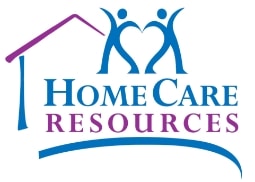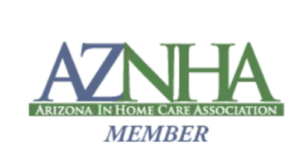
Atrial fibrillation (Afib), a common heart rhythm disorder, affects millions of people worldwide, with a higher prevalence among seniors. As individuals age, the risk of developing Afib increases, leading to concerns about its impact on their overall health and quality of life. However, seniors diagnosed with Afib have several effective treatment options available to manage their condition. In this blog, we will explore various treatment strategies for seniors living with Afib and how home care assistance can help.
Understanding Atrial Fibrillation
Before delving into treatment options, it’s essential to understand what Afib is. Afib is characterized by irregular and often rapid heartbeats, resulting from chaotic electrical signals in the atria (the upper chambers of the heart). These abnormal heart rhythms can lead to symptoms like palpitations, shortness of breath, fatigue, and dizziness. For seniors, managing Afib is crucial for preventing complications like strokes, heart failure, and other cardiovascular issues. Those with home care assistance gain support through monitoring as well as support when concerns arise.
Treatment Goals
The primary goals of Afib treatment for seniors are to:
- Restore and maintain a normal heart rhythm (sinus rhythm).
- Prevent blood clots and reduce the risk of strokes.
- Control heart rate to alleviate symptoms and improve the overall quality of life.
- Address any underlying conditions or risk factors that may exacerbate Afib.
Seniors should understand treatment goals and feel comfortable asking questions about their care needs. When they’re unsure, they can lean on home care assistance to gain the encouragement and support they need. Once treatment goals are understood, treatment options can be explored.
Medications
Medications are commonly prescribed to seniors with Afib to achieve the treatment goals mentioned earlier. Some of the most common medications include:
- Anticoagulants: These include medications like Warfarin or newer agents like Apixaban and Rivaroxaban. They help prevent blood clots and reduce the risk of strokes in individuals with Afib.
- Antiarrhythmic drugs: These medications, like Amiodarone or Flecainide, help maintain a normal heart rhythm by regulating the electrical signals in the heart.
- Rate-control medications: Seniors who cannot tolerate rhythm-control medications may receive drugs like beta-blockers or calcium channel blockers to control heart rate and alleviate symptoms.
With the help of home care assistance, medication can be managed to ensure it is taken consistently and that there are no complications.
Cardioversion
Cardioversion is a medical procedure that uses electrical shocks or medications to restore a normal heart rhythm. It can be effective in treating acute episodes of Afib. However, the success rate of maintaining sinus rhythm may vary, and some patients may require multiple procedures.
Catheter Ablation
Catheter ablation is a minimally invasive procedure that can be an option for seniors with symptomatic Afib that doesn’t respond well to medications. During the procedure, a catheter is guided to the heart to ablate (destroy) the tissue responsible for the irregular electrical signals. This can help restore a normal heart rhythm.
Watchman Device
For seniors who are at high risk of bleeding or have difficulty managing blood-thinning medications, the Watchman device can be an alternative. This implantable device is inserted into the left atrial appendage to prevent blood clots from forming and causing strokes.
Atrial fibrillation is a complex heart condition that can have a significant impact on the lives of seniors. However, with a combination of medications and medical procedures, seniors can effectively manage their Afib and reduce the associated risks. Loved ones and the home care team are also great for support.
If you or an aging loved one are considering Home Care Assistance in Glendale, AZ please contact the caring staff at Home Care Resources today. Call (602) 443-4700
Home Care Resources is a top provider of home care services in Phoenix, Tempe, Scottsdale, Glendale, Paradise Valley, Peoria, Sun City, Sun City West, Surprise, Goodyear, Cave Creek, Care Free, Fountain Hills, and surrounding areas.
- Heart Attack Recovery: How 24-Hour Home Care Can Help - July 22, 2024
- How to Help Seniors With Arthritis - July 8, 2024
- Living With a Pacemaker: A Guide for Seniors - June 24, 2024




